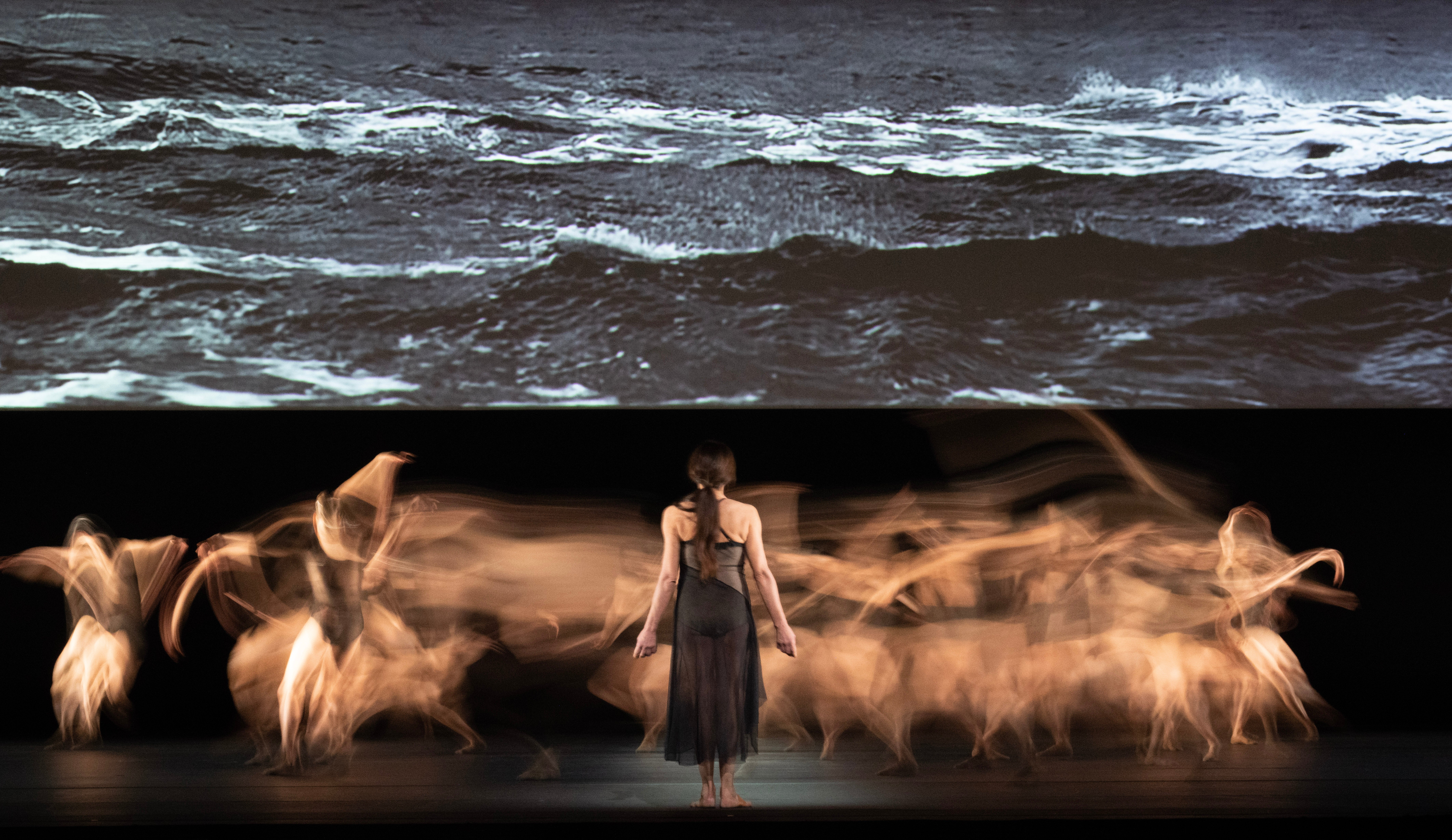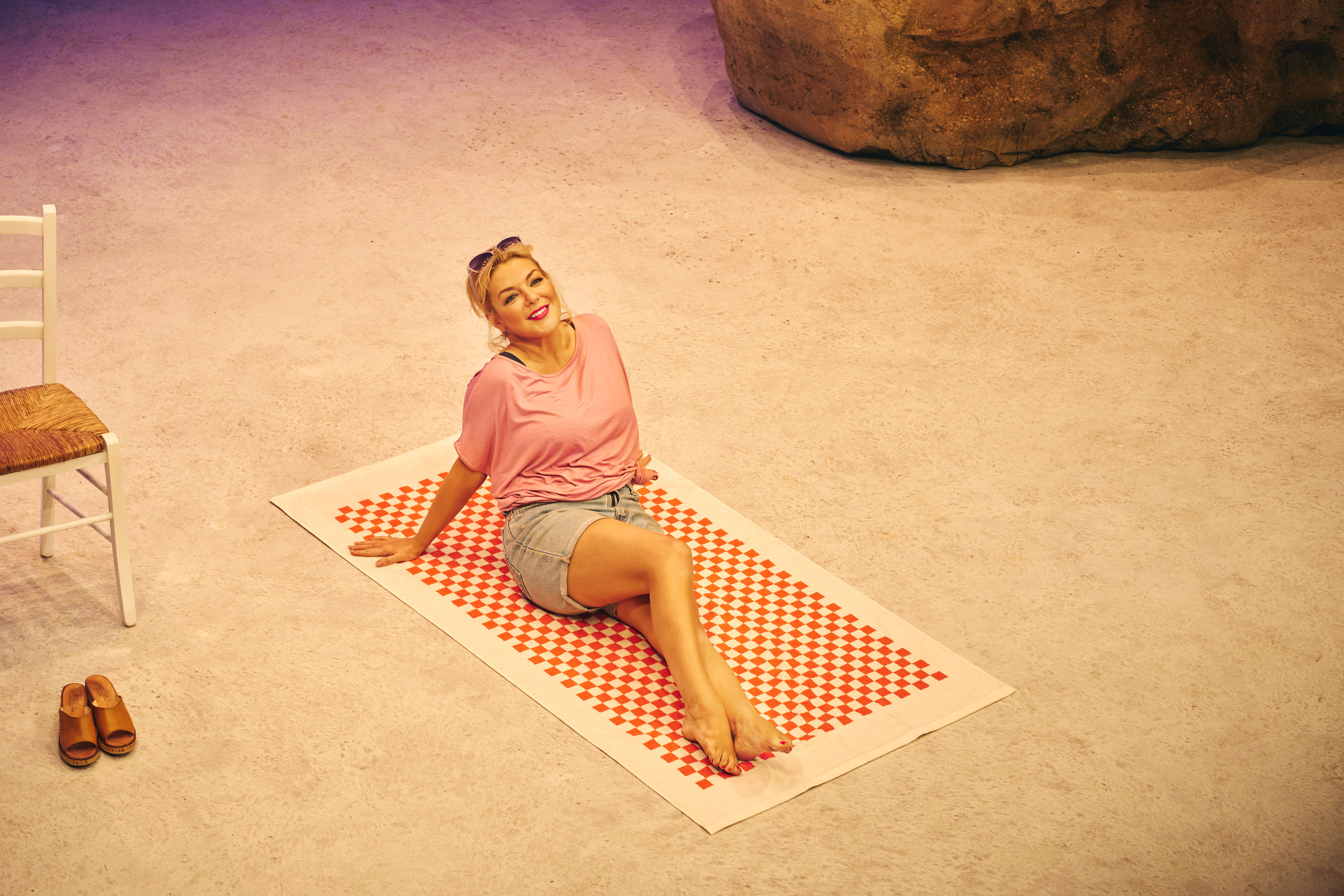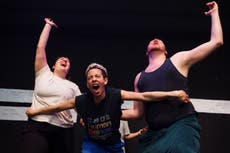The Week on Stage: From Shirley Valentine to Sleepova
A guide to the week’s theatre

This week, Sheridan Smith returns to the West End, a dance classic gets an AI makeover, Wayne McGregor’s celebrated Woolf Works is back at the Royal Ballet, and the Bush Theatre delivers another excellent slice of new writing.
Sleepova – Bush Theatre ★★★★☆
What better way to celebrate your 16th birthday than having your best friends stay at yours for the very first time? Matilda Feyiṣayọ Ibini’s excellent play Sleepova poses this exact question, as we’re introduced to an excited Shan (Aliyah Odoffin), who is preparing her bedroom for a fabulous night with her favourite girls: Funmi (Bukky Bakray), Rey (Amber Grappy) and Elle (Shayde Sinclair).
We start at Shan’s slumber party, but the play soon expands into a wider look at the girls’ lives as they take their GCSEs, start college, and hurtle closer towards adulthood and the challenges that come with it. They deal with plenty of trials in the few years we see: parental estrangement, grief, heartbreak and chronic illness, to name just some. Though it might sound like a lot to squeeze into just over two hours, none of these issues feels shoehorned in – clever and realistic writing shows how much can bubble under the surface of young people’s lives despite the illusion of confidence.

As much as the play embraces tough topics, its humour and warmth is what you remember most. With the value of friendship being so specifically at the heart of Sleepova, it’s crucial that the audience believe there’s genuine love between these characters – and the actors do a stellar job of showing their bond. The banter between them feels familiar and genuine; their delightfully easy chemistry is a pleasure to watch.
Nicole Vassell
Woolf Works – Royal Opera House ★★★★☆
In Wayne McGregor’s Woolf Works, Virginia Woolf’s life and her subjects overlap, sharing the same space. It’s a layered, haunting ballet, with an elegiac central performance by Alessandra Ferri. Created in 2015, this was McGregor’s first full-length work for the Royal Ballet, one in which ideas and character intermingle in the ballet’s own stream of consciousness. Max Richter’s atmospheric score gives the evening tension and melancholy.
With Uzma Hameed as dramaturg, the first act draws on Mrs Dalloway, with Ferri as the older Clarissa Dalloway and as Woolf herself. Ferri is a commanding presence. Her feet have etched clarity as she tests out a step, and she brings a sharp quality of awareness to her dancing, both being and observing her characters. As her past self, Yasmine Naghdi has a headlong sense of youth, matched by Francesca Hayward’s bright energy as Sally.

The second act is an abrupt change of pace: a dance setpiece inspired by Orlando, all extreme poses and frenetic moves. Moritz Junge’s glittering costumes have Elizabethan shapes and glitzy gold fabric, while Lucy Carter’s lighting surrounds the show with lasers. It’s fast and furious, but lacks the weight and shape of the rest of the ballet. Mayara Magri and Fumi Kaneko give distinctive, spiky performances.
The last act draws together Woolf’s own death with imagery from The Waves. We hear Gillian Anderson reading Woolf’s suicide note, as Ravi Deepres’s film shows a sequence of waves, hypnotically slowed. Ferri’s Woolf watches children dancing on the beach, or moves among a rippling corps de ballet. Her duet with William Bracewell is both tender and distant: she’s at once in the heart of the action, and far away from it. Zoe Anderson
Shirley Valentine – Duke of York’s Theatre ★★★★★
Sheridan Smith and Shirley Valentine: it’s a match made in theatre heaven. Willy Russell’s 1986 one-woman play is a beloved British classic; Smith is a national treasure. It sounds like it should work, and it really, really does. From her sly confidences right down to her comfy shoes, Smith conjures the kind of battle-hardened but optimistic woman who might live just down the street; a mother and a wife, who – beneath the quips and anecdotes – is no longer quite sure who she is.
Russell’s warm, wistful play about a fortysomething Liverpudlian housewife who dreams of travelling the world is a proven crowd-pleaser, but from the moment she walks on stage, Smith builds a bond with the audience, melting the fourth wall with a smile. Shirley cheerily chats away as though she’s gossiping with a friend as she makes dinner for her grumpy husband Joe; if she serves his tea late, she reminds him, it “doesn’t mean the pound has collapsed”.
At one point, between cooking his egg and chips, she tells us, matter-of-fact, “He says he loves me – he doesn’t.” She longs to travel and wonders how her life got so small, until her feminist friend Jane – who thinks “all men are potential rapists, even the Pope” – buys her a ticket for two weeks in Greece. She fears that both she and Joe will struggle to fend for themselves, but gathers her courage and gets on the plane, and so begins her search for a second chance at life.

Matthew Dunster’s unfussy production knows that this is the Sheridan show, and allows her performance to take centre stage. The set is simple: an ordinary-looking kitchen for the first act, and an even sparser beach scene in the second – although, admittedly, the glowing fluorescent backdrop of act two is a bit of an assault on the eyes. Following a spray tan at the interval, Smith at times looks like she might blend into it.
What we are really here to see, though, is a performer of rare gifts at the top of her game. After a few so-so TV projects, it’s a joy to see Smith back on stage, where she shines so brightly. She already has two Olivier awards to her name; a third seems a certainty. Start engraving the trophy. Jessie Thompson
Coppélia – Sadler’s Wells Theatre ★★★★☆
Scottish Ballet’s sharp, smart Coppélia swaps clockwork dolls for artificial intelligence. Created in 2022, and already a hit at the Edinburgh Festival, Morgann Runacre-Temple and Jessica Wright’s production is a punchy update of the 19th-century ballet classic. From multimedia playfulness to robot clubbing, Scottish Ballet dance it with glee.
Film is projected onto screens, but refuses to stay there: the images spill right across Bengt Gomér’s sparse, industrial set. Unruly technology is a central theme in Coppélias old and new. The 19th-century Swanilda crept into a toymaker’s workshop, disguising herself as a doll which then seemed to come to life. Here, Constance Devernay is an investigative journalist pursuing a techbro version of Doctor Coppélius, pulling her boyfriend Franz along to the launch of his Coppélia technology.

The new score, written by Mikael Karlsson and Michael P Atkinson, layers snatches of the Delibes original with an atmospheric mix of orchestral and electronic sound. Runacre-Temple and Wright play with the creepiness of the doll fantasy, with a robot that can be programmed to love its owner. But they also make it a source of power for Swanilda, suddenly leading an army of digital copies.
Devernay’s bold lines are amplified by a physical corps de ballet, and by a kaleidoscope of filmed selves. It’s a very effective blend of dance and digital, with slanted, Art Deco angles suggesting something from Fritz Lang’s Metropolis. And like the traditional ballet finale, it gives the ballerina a chance to show her strength: Devernay is commanding. It’s an exuberant performance from the whole company, who switch from bustling scientists to virtuoso cyborgs. ZA
Join our commenting forum
Join thought-provoking conversations, follow other Independent readers and see their replies
Comments


Bookmark popover
Removed from bookmarks